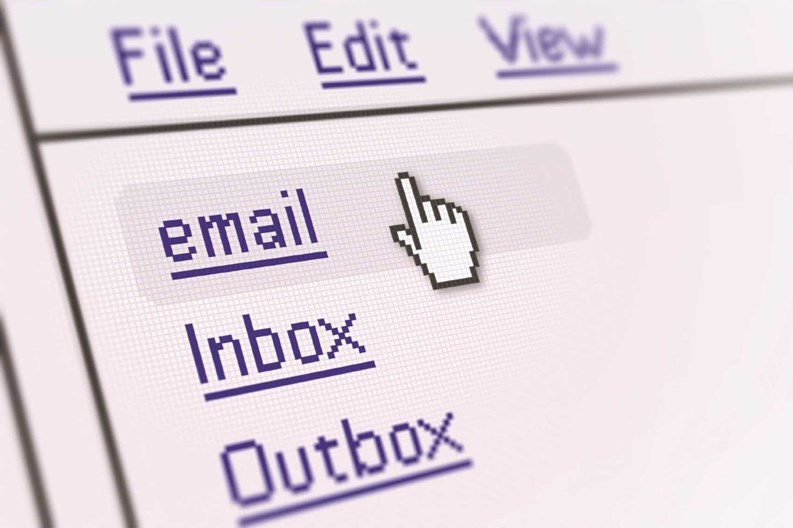Like it or not, e-mail is a permanent fixture of contemporary business communications. In real estate, board members and property managers use e-mail to discuss the most official and the most personal matters of their lives, from scheduling meetings and disseminating documents to sharing quirky videos on YouTube. E-mail allows board members to discuss their concerns without ever having to be in the same room.
But what even the savviest businessmen often overlook is that, when we communicate via email, we leave a written record of everything we say. An email is a legal footprint (in fact, The New York Timesreported in June that prosecutors in the Bear Sterns case would be basing their case against high ranking executives there on a series of incriminating e-mails, a tactic not unlike what we saw in the Enron prosecution.) Used with due caution, e-mail is the businessperson’s best alibi, but occasionally, it can be used against you, too.
The Law
In a lawsuit, discovery is the pre-trial process wherein the two parties can request evidence from one another. New Jersey law provides that any relevant written communication is admissible as discovery, excluding correspondence between the client and his attorney. The law makes no distinction between electronic and written discovery (and actually, most investigators find e-mail more convenient to work with, since it’s easy to search electronically.) In essence, it’s all fare game to opposing council, should a legal action be brought. A written letter has the author’s signature at the bottom, tying the author to the content of the letter. Likewise, e-mail is linked to a specific account, whose owner is responsible for all emails sent from that address.
Fran McGovern, an attorney with McGovern Legal Services, LLC in New Brunswick, cautions managers and board members that all e-mails are potentially in play in a litigation, not just those sent on company e-mail.
“In a litigation, there would not be much of a line drawn between private and personal accounts,” he says. “If you send emails concerning business, the attorney is going to ask for any and all communication [relevant to the matter being litigated.]”
To that end, it’s particularly important to avoid expressing personal feelings about colleagues or applicants over e-mail. According to McGovern, “People could make liable claims based on representations that damage their business. For example, I’ve seen email where people say, ‘The manager is stealing money.’ You’re publishing that claim. You’re putting it out there.” Therefore, the claim will be taken seriously, should the parties enter into legal proceedings.
Use and Misuse
These days, e-mail has become the most commonly used method of communicating between property managers and board members. According to attorney Richard B. Linderman of Stark & Stark in Lawrenceville, the majority of his co-op and condominium board clients primarily use e-mail to communicate with one another. Linderman points out that the majority of boards are made up of volunteers, most of whom have day jobs with conflicting schedules. He adds, “When you have a board that has five members on it, conference calls can become very difficult. People talk over each other and information is lost. That is cut down a lot by the e-mail trail.” Add to that the option to revisit those e-mail chains at a later date—to refresh your memory—and you have in e-mail a strong communication tool for board members.
But since e-mail communication creates a written record, it’s important to treat it as such.
“One of the issues I try to educate the boards about,” Linderman says, “is the fact that once those e-mails are sent, they’re out there forever. Not only do you not know whose going to print that e-mail out, you have the issue that once that e-mail gets saved it has been saved into your hard drive, and hard drives can be discoverable evidence during a lawsuit.”
In other words, any e-mail you send might be used against your company during legal proceedings. Therefore, the writing contained therein should be of an appropriate subject matter and communicate what it intends to in a clear, unambiguous manner. Because it is written communication, the “that’s not what I meant” defense is unlikely to stand up in court.
When a party enters into litigation, the opposing attorneys will send a team of computer forensic experts to extract any relevant evidence from your hard drive, a practice that has now become commonplace in the discovery period of a lawsuit. According to Linderman, “a good forensic firm can go back months just on somebody’s PDA and pull up sent and received e-mails.” As soon as litigation proceedings get underway, companies are ordered to stop the scheduled deletion of e-mails. A failure to do so will often be read as the willful destruction of evidence.
All that notwithstanding, many employees and board members have a tendency to speak freely and informally over e-mail, often more so than they would on the phone or in person. During the now infamous Enron proceedings, it was a series of e-mails that placed executives at conspiratorial meetings they claimed had never happened. Knowing the criminal nature of their activities, these executives certainly never would have thought of sending out an official memo announcing the meetings. Yet they did something equally foolish when they discussed the meetings on company e-mail. Yes, there’s a difference between the e-mail communications of a law abiding cooperative board and those sent by Enron executives, but theirs should be a lesson to us all: be prepared to defend every word that you type.
What about deleting your e-mails as you go? Aside from the fact that many e-mail service providers keep copies of your sent mail, a deletion policy simply isn’t practical in terms of protecting oneself from future litigation. In his article for the The Corporate Counselornewsletter, attorney Michael G. Trachtman points out that “a wholesale e-mail deletion policy” would eliminate both the good e-mails and the bad: those that corroborated your side of the story along with those that did not.
It’s also important to limit the distribution of sensitive e-mails, just as you would a sensitive paper document.
Authors of e-mails should be careful that they’re only sending sensitive e-mails to necessary parties. As useful as the CC and BCC options are, they’re often overused in the workplace. This is one way that sensitive information ends up someplace it shouldn’t be. Every office has its “reply to all” story in which an employee accidentally sends a private e-mail to everyone on a given e-mail chain. (“Hey, did you hear about Bob? He called Jenny a you-know-what—and we all got the e-mail!”) These incidents make great fodder for the company holiday party, but under the right circumstances, they can lead to legal problems for the sending party and others involved.
Finally, it’s important to keep personal mail separate from your company account. (Under certain circumstances, even your Hotmail letters may be deemed discoverable. But by keeping your personal life off the company server, you dramatically decrease the likelihood of having your most personal missives read aloud in court, a situation that everyone should want to avoid.)
Still, many veteran businessmen insist on exchanging personal—sometimes extremely personal—messages over company email. Take, for instance, the case of former Boeing CEO Harry Stonecipher, who was fired after inter-office love letters reached members of the board. Sure, his first mistake was in initiating the relationship itself, but it was the e-mails that ultimately were his demise.
Taking a Vote
Every New Jersey lawyer knows their clients need to exercise caution when using e-mail, but there are a number of interpretations as to just how careful one ought to be. Nevertheless, there is one rule that everyone must observe: you cannot use e-mail to take a binding vote.
According to Hackensack-based attorney Donald M. Onorato, “The New Jersey Condominium Act provides that votes have to be taken at a meeting open to owners on notice.” In other words, an e-mail vote can never be the final word on a matter.
Linderman clarifies further, saying: “The board can informally address these matters over e-mail. But that vote would then have to be ratified at an open meeting.”
This minor point notwithstanding, e-mail is and will remain the primary means of communication for condominium and co-op boards. Whatever your position as to the degree of caution that should be exercised, it’s important to realize that an e-mail chain is a trail of evidence that can act both in your favor and against you. Before you send any e-mail, it’s reasonable to ask yourself: “Is this something I want on record?” If so, make sure that it’s worded in a way that cannot be manipulated for someone else’s gain.
And remember, it’s important to make sure that you’re reviewing questionable communications with your legal counsel before sending them off into cyberspace. E-mail is certainly a modern-day convenience but one wrong click on the send button can spell big trouble for association boards and board members alike.
Jonathan J. Levin is a freelance writer and copy editor living in Philadelphia.







Leave a Comment